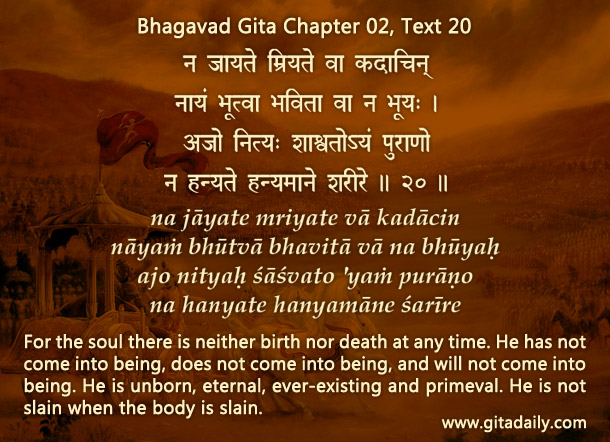In common parlance, the word “unborn” refers to existence before birth — specifically to the existence of the embryo in the womb of a mother. The unborn state is deemed an amorphous kind of pre-existence, with real existence held to begin from the moment of birth. Life manifests in the mother’s womb from conception, but we date life’s beginning from birth. The discounting of pre-natal existence manifests grossly in contemporary culture’s licensing of abortion, with aggressive propaganda that aims to deny the reality that the embryo has life.
Gita wisdom uses “unborn” in an entirely different sense: to refer to existence beyond birth. The Bhagavad-gita (02.20) refers to the soul as unborn and states that it has not come into being, does not come into being and will not come into being, implying that it exists in a realm beyond time. In the Gita’s worldview, birth signifies the beginning of material existence, or more specifically the beginning of one term of bodily incarceration in material existence, with such terms repeating in cycles from birth to death within the wheel of samsara. So, to be unborn means to have an original existence beyond this cycle of birth and death.
The Gita refers to both the soul and Krishna as unborn, but it stresses that Krishna alone is the Lord of all living beings. Indeed, it (10.03) states that when we understand Krishna’s transcendence to time-bound existence and his overlordship of all living beings, we become free from all impurities. Understanding Krishna’s supreme position inspires us to devote ourselves wholeheartedly to him, thereby paving our way towards eternal existence in the unborn level of reality where we belong.
To summarize, the unborn infant progresses by taking birth, whereas the unborn soul progresses by going beyond birth.
To know more about this verse, please click on the image
Explanation of article:
Podcast:
Download by “right-click and save”


Leave A Comment